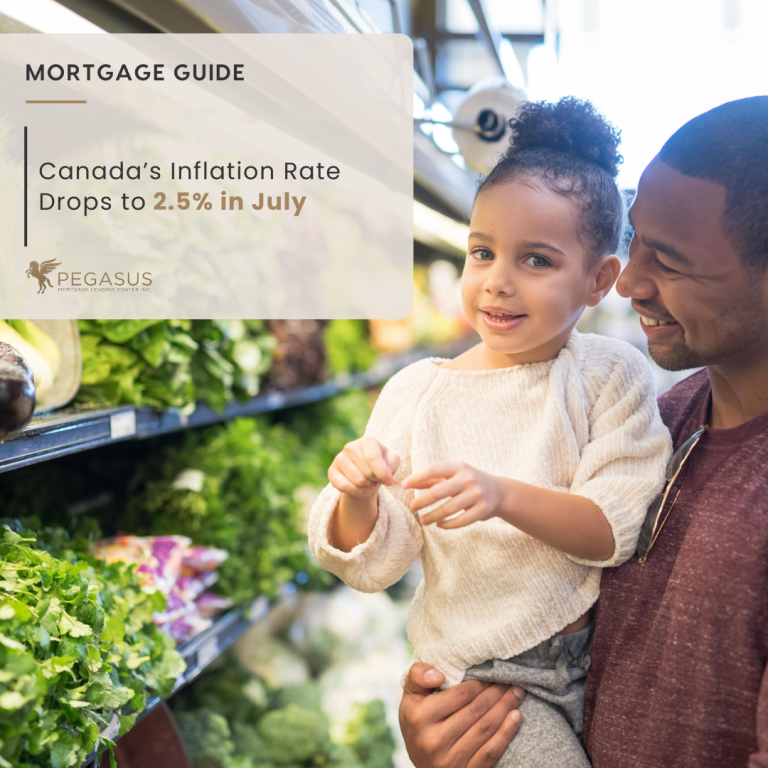Canada’s annual inflation rate fell to 2.5% in July, marking the lowest level since March 2021, according to Statistics Canada. This is a slight decrease from the 2.7% rate recorded in June, and it reflects the slowest pace of inflation growth in over three years.
The decline in inflation is partly due to lower travel costs compared to the previous year when prices for travel tours, airline tickets, and accommodations surged following the lifting of COVID-19 restrictions. Additionally, passenger vehicle prices and electricity costs saw year-over-year decreases, contributing to the overall reduction in inflation.
Despite this positive trend, some sectors continue to see rising costs. Groceries increased by 2.1%, shelter costs went up by 5.7%, and rent costs surged by 8.5% year over year. Mortgage interest rates, reflecting the ongoing impact of interest rate hikes that began in early 2022, jumped by 21%.
Bank of Canada Signals Rate Cuts Amid Inflation Drop
The steady easing of price pressures in Canada has brought the annual inflation rate below 3% since January, encouraging the Bank of Canada to lower its key interest rate during its last two decision meetings. Governor Tiff Macklem has indicated that more rate cuts are likely, provided inflation continues to slow. In the most recent interest rate announcement, Macklem noted that the governing council decided to reduce the policy rate to help the economy regain momentum.
Analysts believe the latest inflation figures further support the case for additional rate cuts. Charles St-Arnaud, chief economist at Alberta Central, stated, “Overall, the Bank of Canada will welcome today’s report as it confirms that inflation continues to ease. Moreover, the breadth of inflationary pressures and the momentum of core inflation suggest further progress.”
Similarly, TD Bank senior economist James Orlando commented that there’s “nothing stopping the bank from cutting rates by another 25 basis points.” He added that with inflation risks diminishing, the central bank’s focus has shifted towards addressing weaknesses in other parts of the economy.
The Bank of Canada is scheduled to make its next interest rate announcement on September 4, and many expect further action to continue supporting the economy.
Persistent Concerns Despite Slower Inflation
Even with the cooling of inflation, challenges remain for many Canadians, particularly regarding the high cost of essential goods like groceries. Economist David MacDonald from the Canadian Centre for Policy Alternatives pointed out that while the rate of increase has slowed, prices remain high, reflecting a base effect where past price increases continue to influence current inflation rates.
“For everyday people, it still feels tough because prices haven’t actually gone down; it’s just that the big jumps in prices happened more than a year ago,” MacDonald explained.
Earlier in the week, another report from Statistics Canada highlighted ongoing financial struggles for many Canadians. The report revealed that after adjusting for an annual inflation rate of 6.8%, the median family after-tax income in 2022 was 4% lower than in 2021. The hardest hit were single-parent families with a parent under 25, who saw their income drop by 15.1% to $24,690 in constant dollars in 2022.
These findings underscore the ongoing economic difficulties Canadians face, despite the recent moderation in inflation.


